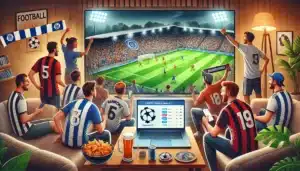Small Town, Big Deal
story by Kay Bradley
If you were to drive through the campus of America’s most conservative college this last week you would think that it is anything but. For the last seven days rainbow flags have flown in protest to the university’s policies, and across the street signs were waved in counter-protest.
Rexburg is a quiet town in southeastern Idaho. It is also host to Brigham Young University- Idaho, one four private religious schools owned by The Church of Jesus Christ of Latter-day Saints.
The Honor Code protests were precipitated by a misinterpreted change in the University’s Honor Code–the code of personal moral conduct that all BYU-I students are required to sign. On February 19th, the Church Education System (CES) updated the Honor Code for all church schools “to be in alignment with the doctrine and policies of the Church.” One of these changes was the removal of a clause that prohibited romantic homosexual behavior.
Many observers were surprised that the clause itself was taken out. The Church famously teaches a traditional Law of Chastity, which specifically prohibits sexual relations outside of marriage between a man and a woman. The leaders of The Church have long taught that being Chaste is more than refraining from sex. In fact, Latter-day Saint children are counseled to not date until they are 16, and to avoid passionate kissing of any kind until they are married. A minority of students who identify as LGBTQ+ interpreted the change in wording to mean that it now allowed dating, hand-holding, and kissing of same-sex individuals, and celebrated for two weeks before any official statement was given by the university.
On March 4th the Commissioner of Education for the CES, Elder Paul V. Johnson, issued a clarifying letter that states “Same-sex romantic behavior cannot lead to eternal marriage and is therefore not compatible with the principles included in the Honor Code.” This exposition is the cause of unrest from “Allies.” Elder Johnson’s statement also drew support from several students, many of whom identify with a faith-based movement that originated on twitter called Deseret Nation, or “DezNat” for short.
One of the protesters, Grey Woodhouse, felt that these protests were important “because people think that queer students just don’t exist here, and they don’t understand [they] are treated differently and [they’re] treated poorly.” Another, Ace, said that she was “out to support [her] friends.” Jesus Ramos, a student that identifies as gay, says that “The church has always encouraged love and acceptance around the world, and I don’t see why they wouldn’t do that here on campus.” Several more felt that the counter-protesters were only out to spread hate and intolerance. They felt like a doctrinal document, The Family: A Proclamation to the World was being “weaponized” against them for its teachings on marriage and the family.
From the opposite street corner Noah Blaylock held a sign with a quote from Latter-day Saint scripture that reads “Whether by mine own voice, or by the voice of my servants, it is the same.” When asked about his sign and reasons for counter-protesting he explained: “I’m out here today because I think that [progressive activists are] hurting gay people, telling them the vicious lie that everyone hates them, nobody likes them.” He continued, “the honest truth is that most people don’t care enough about your sexuality to oppress you… I don’t hate them, but I’m out here out of my love for them.” The organizer of the counter-protest, Andy, echoed this sentiment saying “It is more loving to invite our Brethren to come back unto our Heavenly Father’s fold than advocate for condoning sin.” This same message is found in the Official users Guide for “DezNat,” which says “We are not limited by a one-dimensional, overly simplistic view of a Christ who teaches that only unconditional acceptance is true love.”
Throughout the protest, people crossed sides to have discussions, few of which were friendly. The counter-protesters participated in a reading of The Family: A Proclamation to the World with close to 20 people gathering. Across the way, the protesters sang hymns like “Love One Another” and held a moment of silence for members of the LGBTQ community affected by suicide.
Protesters and counter-protesters alike were subjected to slurs, vulgar hand gestures, and “coal rolling.” Coal Rolling is a common practice among those who drive diesels, where dark clouds of engine exhaust are fumed upon people standing on sidewalks. Behaviors like these were not condoned or planned by either side.
Overall, the protest itself did little in the way of changing any practice or policy. It sowed discord among the student body and ‘othered’ members of the LGBTQ community. Rather than build bridges, the demonstrations caused contention and in no way facilitated meaningful dialogue. Both sides were accused of hate and intolerance. This may be merely the latest symptom of our growing reversion to tribalism and the breakdown of civil discourse in America.







